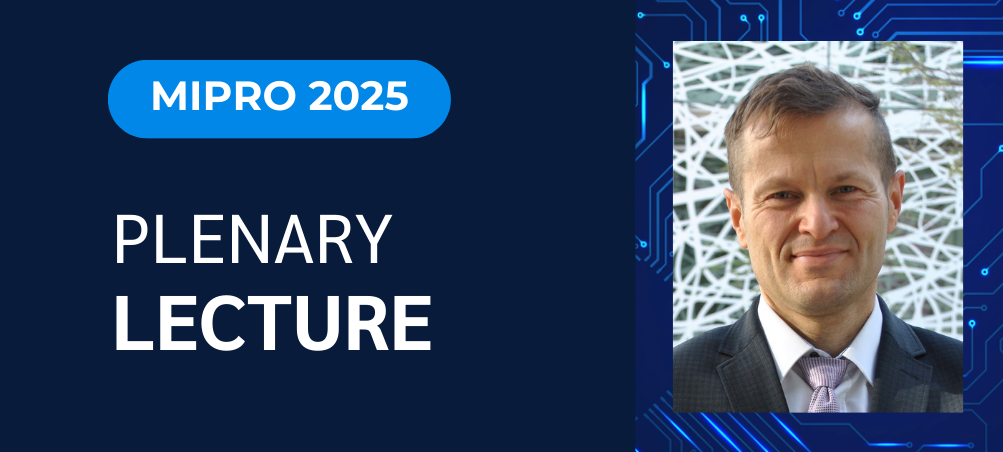Nobel laureate's plenary lecture at the 48th MIPRO convention

SUB-ATOMIC MOTIONS
From capturing electrons to speeding up signal processing
Ferenc Krausz
Max Planck Institute of Quantum Optics, Garching, Germany
Ludwig-Maximilians-Universität München, Munich, Germany
Center for Molecular Fingerprinting, Budapest, Hungary
Born at the dawn of the new millennium, attosecond “photography” has opened the door for capturing sub-atomic motions as they evolve in time. Control of the oscillating electric field of light has permitted the attosecond control of electrons with unprecedented precision in space and time.
Fundamental quantum phenomena, such as electron tunneling and light-electron energy exchange in solids as well as fundamental classical phenomena, such as the field oscillations of visible light, became accessible to human observation in slow-motion replay.
These capabilities open new avenues for 21st-century science, technology, and medicine. Some of them emerge from the ability to sample light fields with attosecond precision. Here, we focus on the technology’s possible role in advancing electronic signal processing toward its ultimate limit: visible light frequency.
Ferenc Krausz graduated in electrical engineering from the Budapest University of Technology and completed his studies in theoretical physics at the Eötvös Loránd University in 1985. He earned his doctorate in laser physics from the Technische Universität Wien (1991), where he became a professor in 1998. In 2003-2004, he was appointed director at the Max-Planck-Institute of Quantum Optics in Garching and chair of experimental physics – laser physics at the Ludwig-Maximilians-Universität and established “Attoworld” at these two sites (attoworld.de).
In a series of experiments performed between 2001 and 2004, his team succeeded in producing and measuring isolated attosecond pulses of light and applying them to observe sub-atomic motions. Attoworld has been fostering the proliferation of the emerging field, attosecond science, and – since 2015 – exploring its utility for probing human health. For his contributions to establishing the field of Attosecond Science, Ferenc Krausz has been awarded the King-Faisal International Prize for Science (2013), the Wolf-Prize in Physics (2022), the BBVA Frontiers of Knowledge Award (2023) and the 2023 Nobel Prize in Physics.
[back to events]
|